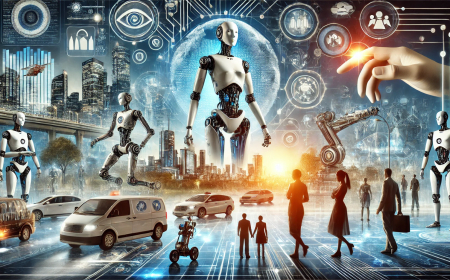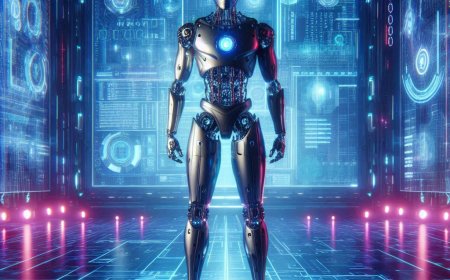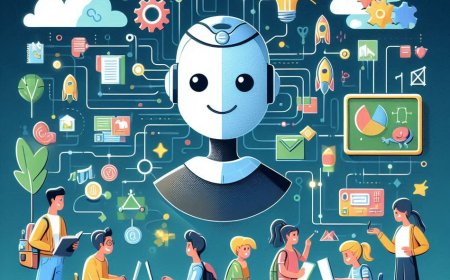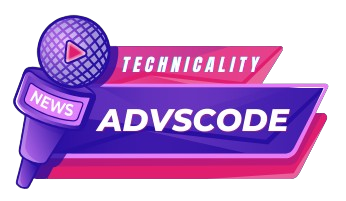Technology and Artificial Intelligence
Transformative Changes in the Modern World
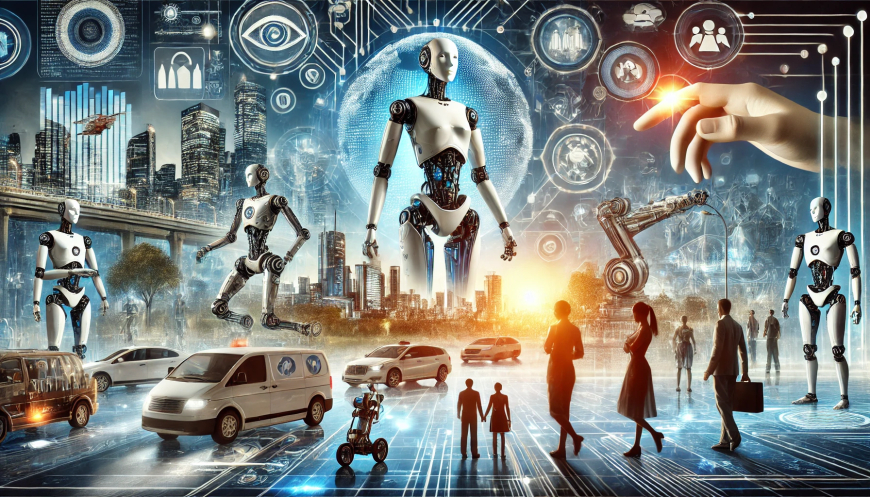
Introduction
In the present era, technology has become an inseparable part of daily human life. The world has witnessed remarkable progress in this field, significantly impacting various aspects of life, from communication to industry, education, and even medicine. Among the most fascinating technological advancements is Artificial Intelligence (AI), which has transformed our understanding of how humans interact with machines. AI is one of the major innovations with far-reaching implications across numerous fields, opening new horizons while also raising various ethical and societal questions.
Definition of Technology and Artificial Intelligence
Technology refers to the application of scientific knowledge to serve humanity, encompassing tools, devices, and systems that solve problems and improve the quality of life. Conversely, Artificial Intelligence is a branch of computer science concerned with developing systems capable of performing tasks that require human intelligence, such as learning, reasoning, and decision-making.
Evolution of Technology and Artificial Intelligence Through History
The journey of technology began in ancient times with the invention of the wheel and stone tools, progressing through industrial and technological revolutions that led to extraordinary developments. In the 20th century, the advent of digital computing paved the way for Artificial Intelligence. This technology evolved from mere theories and academic research in the 1950s to practical applications today, including self-driving cars, medical diagnostics, and digital assistants.
Applications of Artificial Intelligence
AI is used across a wide range of domains:
-
Healthcare:
- AI provides analytical tools that assist in accurately diagnosing diseases, such as early cancer detection.
- It is used to accelerate the development of new drugs by simulating chemical interactions.
- Surgical robots have become essential tools in precise medical procedures.
-
Education:
- AI helps personalize learning experiences for each student through machine learning.
- Digital platforms like "Coursera" and "edX" offer AI-powered educational content.
-
Industry:
- Enhancing production line efficiency with intelligent systems.
- Predicting demand and managing supply chains.
-
E-commerce:
- Analyzing customer data to provide personalized recommendations.
- Using chatbots to improve customer experience.
-
Security and Defense:
- Analyzing security data and detecting potential threats.
- Developing intelligent surveillance systems.
Benefits of Technology and Artificial Intelligence
-
Increased Efficiency and Productivity:
- Smart machines perform routine tasks faster and more accurately than humans.
-
Improved Quality of Life:
- Smart applications simplify daily life, such as voice assistants and smart home technologies.
-
Supporting Innovation:
- AI accelerates scientific research and discovers new solutions.
-
Addressing Global Challenges:
- AI can help combat climate change and improve the management of natural resources.
Challenges and Concerns Related to Artificial Intelligence
Despite the significant benefits offered by AI, it also presents several challenges:
-
Unemployment:
- The reliance on smart machines has reduced the demand for human labor in certain sectors.
-
Ethics:
- Decisions made by intelligent systems raise ethical issues, such as biases in data.
-
Privacy:
- AI systems rely on collecting vast amounts of personal data, sparking privacy concerns.
-
Cybersecurity:
- Smart technologies may be misused by hackers.
The Future: Towards a Partnership Between Humans and Machines
AI is a driving force for the future of humanity, but it is crucial to strike a balance between leveraging it and managing it cautiously. It is expected that developments in this field will continue to include more complex applications, such as space exploration and quantum computing. To fully benefit from these technologies, investments must be made in developing policies and regulations that responsibly govern the use of AI.
Conclusion
Technology and Artificial Intelligence represent a world of limitless opportunities, but they also impose new challenges on society. By directing these technologies towards positive goals and promoting responsible innovation, AI can contribute to improving the quality of life and achieving unprecedented progress in various fields.
What's Your Reaction?







